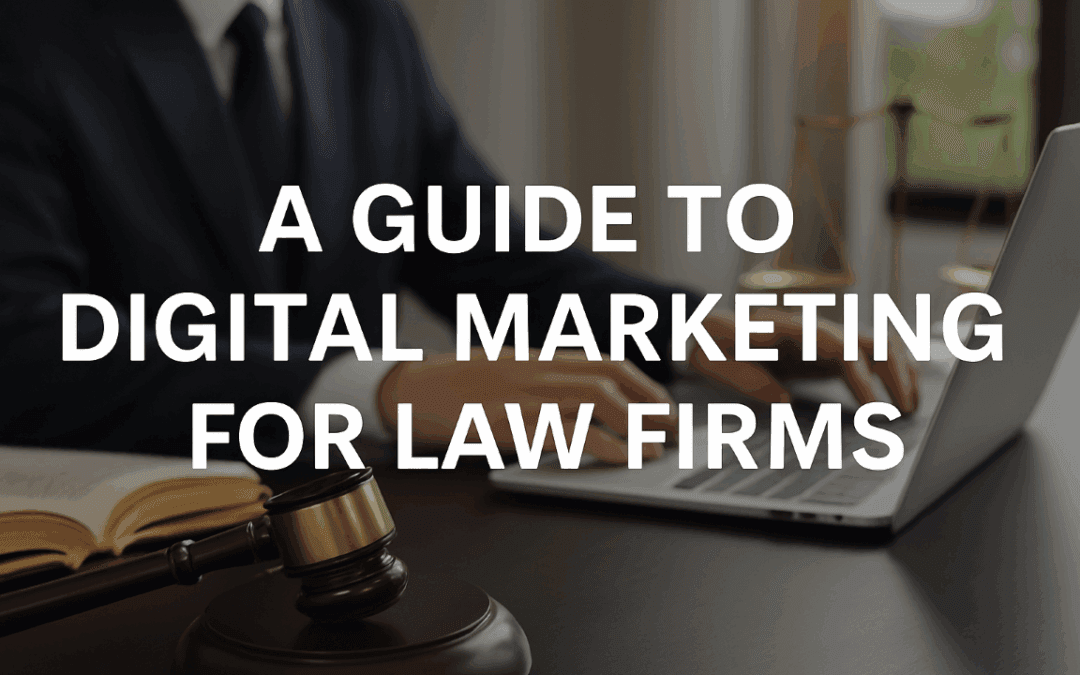Content marketing is an important aspect of any law firm’s overall strategy. It can help to increase brand awareness, drive website traffic, and ultimately generate more leads. This article provides an ultimate guide to content marketing for law firms. It outlines the key elements that need to be considered when creating a content marketing plan for a law firm. It will also provide useful tips for creating and implementing a successful content marketing plan.
Content marketing is an effective way for law firms to reach their target audience, build relationships with potential clients, and establish themselves as authorities in the legal field. To achieve these goals, it is essential for law firms to have a well-thought-out content marketing plan that takes into account the specific needs of their target market. A successful content marketing plan includes carefully crafted messaging that resonates with the target audience, well-researched topics that are relevant to the industry, and creative strategies that engage readers and encourage them to take action.
This article provides an ultimate guide to content marketing for law firms. It outlines the key elements needed for creating a successful content marketing plan and offers practical implementation tips. By understanding the importance of content marketing and following the guidelines outlined in this article, law firms can maximise their return on investment by generating more leads and increasing their brand visibility online.
What Is Content Marketing For Law Firms?
Content marketing for law firms focuses on creating and distributing content to attract and engage prospects, create relationships, and ultimately convert them into clients. Content serves as the foundation of any successful marketing strategy; however, it can be particularly beneficial for law firms since legal services tend to require more research and trust than other types of services. By providing helpful and informative content in the form of blog articles, eBooks, social media posts, videos, podcasts, or webinars, law firms can establish thought leadership in their field, which can lead to an increase in brand recognition and credibility.
Law firms using content marketing law firms should also be seen as an opportunity to differentiate from other law firms in the industry. Many law firms are missing out on potential clients because their websites lack quality content that will make them stand out from the competition. By providing engaging content that is tailored to fit the needs of their target audience, law firms can demonstrate their expertise while building relationships with potential clients. Additionally, by optimising content for search engine algorithms such as Google’s algorithm, law firm owners can improve their visibility online, so they appear higher on search engine results pages (SERPs).
Furthermore, content marketing can also provide valuable insights into how prospects interact with your brand and what type of content resonates best with them. This data can be used to understand customer preferences better and tailor future campaigns accordingly. For example, if a particular blog post or video received a lot of engagement from prospects, then this could be indicative that the topic resonates with them and additional pieces related to it could be created in order to engage customers further.
In summary, content marketing has become increasingly important for modern-day law firms since it allows them to differentiate themselves from competitors while generating leads through informative content.
Do Law Firms Even Need Content Marketing?
Given the increasingly complex nature of the legal industry, content marketing has become an essential tool for law firms to differentiate themselves from their competitors and generate leads. While traditional advertising methods such as print ads or billboards may have worked in the past, today’s consumers expect a more personalised approach when it comes to marketing and is actively searching for information that is relevant to them. This makes content marketing especially important for law firms as it allows them to reach their target audience with helpful and engaging content.
To maximise the effectiveness of content marketing for law firms, it is essential that they develop a comprehensive strategy that outlines their goals, budget, target audience, desired outcomes, and resources. Additionally, when developing a content marketing strategy for a law firm, it is important to remember that different types of content will resonate better with different audiences. For example, video content may be more effective in reaching younger generations while podcasts could be used to reach those who prefer audio over visual formats. Furthermore, understanding how to use search engine optimization (SEO) effectively can also give law firms an edge when it comes to being discovered online by potential clients.
As such, content marketing should be considered an integral part of any successful marketing strategy for law firms since it provides an opportunity to engage prospects while establishing thought leadership in the field. Utilising a range of strategies such as SEO, social media campaigns, email campaigns, and creative visuals are all important components when looking to implement an effective content marketing strategy for your law firm. Ultimately this will help build relationships with prospects while increasing brand recognition and credibility which can lead to more clients and improved business growth.
Creating Your Content Strategy For Long-Term Organic Traffic
An effective content marketing strategy for law firms should be tailored to long-term organic traffic, focusing on optimising content for search engine rankings. By utilising SEO best practices, such as researching and incorporating relevant keywords into titles, headings, and text, law firms can ensure their content is discoverable online. Additionally, using backlinks to other relevant sites can help demonstrate the validity of the law firm’s content and attract more visitors. Furthermore, it is important to ensure that all content is well-structured so that it can be easily understood and accessed by search engines.
Social media campaigns are also an important component of any successful marketing strategy for law firms. Social media provides an ideal platform for promoting the firm’s content and engaging with potential clients. Law firms should strive to create meaningful connections with their audience through social media by responding to comments and questions in a timely manner while providing helpful information or advice related to the legal services they offer. As such, having a presence on multiple social media channels is essential to reach a wider audience and building trust with potential customers.
Finally, email campaigns are another effective way for law firms to get their message out there while keeping prospects informed about their services or the latest news. Emails should provide unique value such as exclusive discounts or access to free resources while also highlighting the benefits of working with the firm in question. Additionally, emails should always have a clear call-to-action so that readers know what action they need to take next to find out more information or contact the firm directly.
In summary, when developing a content marketing strategy for a law firm it is important to remember that different types of content will resonate better with different audiences and optimise content for long-term organic traffic using SEO best practices. Additionally, leveraging social media campaigns and email campaigns are both essential components when looking to market your law firm online successfully.
Research FAQs And Produce Content That Answers Your Client Needs
When it comes to developing an effective content marketing strategy for law firms, it is important to research the frequently asked questions (FAQs) of potential clients and produce content that answers those needs. This can be done by conducting keyword research, analysing the competition’s content, and understanding the needs and interests of your target audience. Once this information is gathered, law firms can create blog posts, whitepapers, e-books, webinars, or other types of content that answer common client questions and provide actionable advice. Through this process, firms can position themselves as thought leaders in their respective fields and establish trust with potential customers.
In addition to creating high-quality content tailored to client FAQs, it is also essential for law firms to optimise their content for SEO purposes. This includes incorporating relevant keywords into titles and text and creating meta descriptions that accurately describe the page’s contents. Furthermore, utilising internal linking between pages on the website can help search engines better understand a firm’s structure and improve its ranking in SERPs (search engine result pages). Finally, promoting content through social media channels or email campaigns is an effective way to increase visibility while driving more traffic back to the website. This ultimately helps attract new prospects which increases revenue opportunities over time.
Research Your Keywords And Create Content Clusters To Improve Your Website Ranking
To further improve the visibility of law firms online, it is important to research keywords and create content clusters that are related to each other. This is done by identifying the target audience’s needs and interests, researching relevant industry keywords, and analysing the competition’s content. This information can then be used to create a cluster of content topics related to those keywords that can be addressed on the firm’s website. By creating content clusters, law firms can optimise their websites for SEO by increasing relevance for targeted search terms.
Highlight Your Experience With Case Studies
Having established a comprehensive keyword strategy and an optimised website, it is important for law firms to highlight their experience in the field. This can be done by sharing success stories and case studies on their website. Through these stories, firms can showcase their successes to potential clients and demonstrate how they are uniquely qualified to handle legal matters.
By providing success stories, law firms can establish trust with potential clients and provide an opportunity to showcase their expertise. Additionally, success stories can serve as helpful resources for individuals who may be facing similar issues and need guidance on the best course of action. These stories can also help to differentiate a firm from its competitors by highlighting unique experiences or outcomes that other firms may not be able to provide.
Success stories are an effective way for law firms to demonstrate their experience while establishing trust with potential clients. By providing helpful resources through case studies and examples of successful outcomes, law firms can effectively differentiate themselves from others in the industry while setting themselves up as reliable experts in the field.
Check Your Competitors Content
Having identified successful strategies for marketing their content, it is important for law firms to assess the content of their competitors. This can be done by studying the types of content other firms are producing and the key messages they are communicating. By understanding what is being said in the industry, law firms can develop unique and compelling content that stands out from the competition.
Competitor analysis can provide insight into current trends and topics related to legal services. This information can then be used to create content that addresses those topics in an original and engaging way. Law firms should also consider using competitor analysis as a benchmark for measuring their own success. By tracking changes in their competitors’ content, law firms can identify areas where they may need to improve or adjust their own strategies.
Competitor analysis provides a valuable opportunity for law firms to understand how they compare to others in the industry and identify areas that need improvement. Through this analysis, law firms can develop unique content that stands out from the competition while staying informed on current trends related to legal services.
Produce Foundational And Informational Content For Your Website
Having completed competitor analysis, it is now important for law firms to create powerful and engaging content for their website. Foundational content provides an overview of the firm’s services and demonstrates their value to clients. This type of content should be concise, informative, and interesting to capture the attention of potential customers. Additionally, informational content can be used to educate customers on specific legal topics or industry trends related to the firm’s services.
When creating foundational or informational content, law firms should ensure that it is well-researched and accurate. Additionally, content should be tailored to appeal to a variety of audiences to maximise its reach. Furthermore, using visuals such as videos, infographics, and images can help draw readers in and make the information more accessible.
Finally, both foundational and informational content should include clear calls to action so that readers know what steps they need to take next. By providing engaging and authoritative content tailored to their target audience, law firms can increase their visibility within the industry while also demonstrating their expertise in legal matters.
Create Content That Reflects Your Expertise And Authority
Having created content that provides an overview of the firm’s services and educates customers on relevant legal topics, it is now important for law firms to create content that reflects their expertise and authority. This can be done by highlighting their successes in past cases or by discussing industry trends. Additionally, law firms should use language that is authoritative yet accessible to demonstrate their knowledge without coming across as too technical.
To ensure that content is both engaging and informative, it should be structured with clear headings and subheadings. This will make it easier for readers to find the specific information they are looking for while also making the content more aesthetically pleasing. Furthermore, including quotes from experts in the field can help establish a sense of authority while also providing an extra layer of credibility.
By creating high-quality content that reflects the expertise of the law firm, potential clients will be more likely to trust them with their legal needs and seek out their services. Additionally, this type of content can help increase visibility within the industry as well as generate leads for new cases.
Optimise Your Content For SEO
Once your law firm has created content that reflects your expertise and authority, you should then focus on optimising it for search engine optimisation (SEO). This involves using specific keywords and phrases throughout the content to make it easier for potential clients to find the law firm’s website. Additionally, law firms can use meta tags and titles to highlight their services and increase the visibility of their website.
Using internal links within the content can also help improve SEO rankings as it allows readers to navigate between pages easily. Additionally, external links to reputable sources can add an extra layer of trustworthiness and provide readers with further information on a topic. It is important, however, that these links are used sparingly to avoid overwhelming readers.
Finally, by using social media platforms such as Twitter and Facebook, law firms can increase their reach even further. This helps cultivate relationships with potential clients while positioning themselves as industry leaders. Utilising social media in this way can also help improve SEO rankings by providing additional backlinks to the firm’s website.
Stay Ahead Of The Curve
To stay at the forefront of the legal industry, law firms must remain up-to-date with the latest trends in content marketing. This requires an understanding of how search engine algorithms work and being aware of any changes that may be implemented. Additionally, it is important to keep an eye on what competitors are doing in terms of content marketing to gain insight into other strategies that may be employed.
Furthermore, law firms should ensure their content is interesting and engaging for potential clients. By creating high-quality, informative content, readers will be encouraged to dig deeper and learn more about the services offered by a firm. Additionally, this can give readers a better sense of who a law firm is and what they do.
To summarise, staying ahead of the curve in content marketing requires law firms to remain up-to-date on industry trends and keep an eye on their competitors’ strategies. It also means creating content that is both informative and engaging for readers to build trust and demonstrate expertise. By paying attention to these factors, law firms can position themselves as leaders in their field and gain an edge over their competition.
Frequently Asked Questions
How Can I Measure The Success Of Content Marketing For Law Firms?
Website traffic is one of the most common metrics used to measure content marketing success for law firms. By tracking the number of visitors to a website or blog post, marketers can see who is engaging with their content and which pieces are resonating with their desired audience. Additionally, measuring organic search rankings can also provide useful insight into how well a piece of content is performing in terms of getting found by potential customers on an online search engine result page (SERP).
Conversions and lead generation are two other metrics that should be tracked when assessing the success of content marketing for law firms. Conversions refer to any action taken on a website or blog post that leads to a sale or further engagement with the brand. Lead generation is related but refers specifically to capturing contact information from potential clients. Both metrics are essential for understanding how well a particular piece of content has performed in terms of driving real-world results.
By monitoring these key performance indicators, law firm marketers can get an accurate picture of how effective their content marketing strategy has been in generating leads and converting them into paying customers. Furthermore, they can use this data to refine their approach in the future and focus on pieces that have generated the best results so far.
What Kind Of Content Should I Avoid Creating For Law Firms?
Content that does not fit within the scope of what a law firm tries to achieve should be avoided. This includes topics that are unrelated to legal services or any topics that do not directly relate to the mission statement or purpose of the law firm. Additionally, it is also important to avoid creating content that could potentially harm the reputation of the law firm or its attorneys. For example, controversial topics or anything deemed offensive or inappropriate should be off-limits when creating content for a law firm.
Quality control is also an important factor when deciding what kind of content should be avoided by a law firm. Content created must adhere to high-quality standards to ensure it resonates with intended audiences and meets their expectations. Poorly written or unprofessional content can reflect negatively on a law firm, so it is essential that all content created meets minimum quality standards before being published or distributed.
In summary, when creating content for a law firm, care must be taken to ensure only relevant, professional and high-quality materials are used for marketing efforts. Anything deemed inappropriate, irrelevant or low-quality must be avoided to protect the reputation of the law firm and its attorneys as well as ensure goals are reached in an effective manner.
How Often Should I Update My Content For Law Firms?
How often to update content will depend on the type of content being created and the volume of new topics being presented. For example, if an article is published about a legal topic, it would be wise to update it regularly with changes in laws or regulations. Additionally, for topics that involve news or trends, updating the content more frequently may be beneficial as these items can become outdated quickly.
The frequency of updating content should also be determined by the amount of time available from both the creator and the reader. If there is limited time available from either side, it may not be feasible to update content very often. In this case, creating longer pieces that can provide more comprehensive information may be better. This way readers can find all relevant information in one place, and creators only need to do periodic updates instead of continuously changing their material.
Ultimately, deciding how often to update content depends on various factors such as type of content, amount of new topics, availability of time from creators and readers, etc. By considering these elements when creating content for law firms, one can ensure that their material remains engaging and up-to-date which will help them reach potential customers more effectively.
What Are The Most Effective Strategies For Content Marketing For Law Firms?
Given the ever-changing nature of digital media, it is important that law firms focus on developing a comprehensive content marketing plan that includes various tactics, such as creating original content, optimising existing content for search engines, leveraging influencers, and engaging with audiences on social media platforms. Content must be tailored to meet the needs of the target audience and should be regularly updated to remain relevant. Additionally, repurposing existing content into different formats can help maximise exposure and engagement with potential clients.
To achieve success in content marketing, law firms must also invest in tools such as analytics software to track performance metrics and inform future strategic decisions. Additionally, monitoring trends in the industry can provide insight into effective approaches for attracting and maintaining client interest. By taking advantage of these strategies, law firms can effectively build relationships with potential customers through quality content that resonates with their target audience.
Are There Any Legal Restrictions I Should Be Aware Of When Creating Content For Law Firms?
When creating content for a law firm, it is essential to familiarise oneself with applicable rules and regulations that may apply. This includes copyright and trademark laws, as well as libel and slander laws. Additionally, it is important to be aware of privacy or data protection laws and other consumer protection regulations that may exist in certain jurisdictions.
It is also necessary to be mindful when using third-party content in creating content for law firms to avoid potential infringement claims. As such, thorough research should be conducted on any third-party material before its use to ensure the firm remains legally compliant. By understanding legal restrictions related to content marketing for law firms, organisations can create effective campaigns while avoiding costly lawsuits.
Conclusion
Content marketing has become a powerful tool for law firms to increase their visibility and reach new clients. The success of content marketing depends on understanding the legal restrictions, developing an effective strategy, and creating content that resonates with the target audience. It is important to avoid creating content that could be considered offensive or inappropriate for a professional legal setting, as this could damage the firm’s reputation.
A consistent and regular update schedule is also essential to ensure that content remains relevant and up-to-date. By being aware of the applicable legal restrictions and putting in place an effective strategy, law firms can successfully leverage content marketing to reach out to potential clients. With careful planning and execution, law firms can use content marketing as an invaluable tool for promoting their services.
If your law firm needs content marketing, then we can help! Our team has a lot of experience in writing for the legal industry, so get in touch with us today!





0 Comments